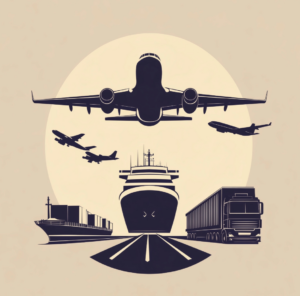International shipping is a critical step for small business owners trying to expand into global markets. However, understanding customs procedures, handling import tax regulations, and ensuring compliance can often feel overwhelming. This is where navigating customs brokerage becomes essential. By gaining insight into the complexities of cross-border shipping, small businesses can avoid costly mistakes and streamline their operations. In this expanded guide, we will delve deeper into the top 10 frequently asked questions (FAQs) about customs brokerage while offering actionable tips, examples, and case studies to help you achieve seamless international shipping.
1. What is Customs Brokerage?
Customs brokerage refers to the services provided by a professional intermediary, commonly known as a customs broker, to help businesses comply with customs regulations when importing or exporting goods. Customs brokers act as liaisons between business owners and customs officials, ensuring accurate documentation and smooth clearance of shipments.
For example, imagine a small business importing specialty coffee beans from South America into the United States. Navigating the complex trade codes, tariff classifications, and import duties could pose significant challenges. A customs broker takes charge of these tasks, ensuring compliance while allowing the business owner to focus on running their operations.
Core Responsibilities of a Customs Brokerage Company:
- Preparing and submitting necessary documentation for customs clearance.
- Calculating duties, tariffs, and fees.
- Guiding businesses through complex import/export laws.
- Facilitating communication with customs officials to resolve potential issues.
By hiring a reliable customs brokerage company, small businesses can significantly reduce the risks of non-compliance and mitigate potential fines or delays.
2. Why is Customs Brokerage Important?
Customs brokerage serves a vital role in ensuring that shipments meet local and international regulations. Non-compliance can lead to:
- Fines and penalties.
- Delayed shipments, affecting customer satisfaction.
- Confiscation or return of goods.
Take, for instance, the story of a small electronics retailer trying to import drones into the European Union. Due to improper classification of goods and missing documentation, their shipment was delayed for weeks, resulting in stock outages during peak demand. A customs brokerage company could have prevented such a scenario by accurately classifying the product, calculating the import tax, and ensuring speedy clearance.
Additionally, customs brokers are well-versed in handling exemptions, special trade agreements, and preferential duties, which could result in significant cost savings for businesses.
3. How to Choose the Right Customs Brokerage Company?
Choosing the right customs brokerage company can make or break your international shipping operations. To evaluate potential partners, consider the following criteria:
Key Factors to Assess While Choosing a Customs Broker:
- Industry Expertise: Does the company specialize in handling goods in your industry? For example, if you’re in food imports, the broker should be familiar with sanitary and phytosanitary regulations.
- Global Network: A capable broker will have a solid network of agents and customs contacts worldwide to ensure seamless cross-border operations.
- Technology Integration: Opt for brokers who provide real-time tracking, e-documentation, and automated compliance systems to simplify processes.
- Track Record: Look for brokers with proven success in meeting compliance requirements and clearing goods quickly.
Case Study:
A small furniture retailer based in the US partnered with a customs broker specialized in home goods. The broker identified a preferential trade agreement between the US and Vietnam, enabling the retailer to import goods without paying certain duties. This saved the business thousands of dollars annually and enabled competitive pricing for its customers.
4. What are Common Challenges in Customs Brokerage?
While customs brokerage decreases the complexity of international shipping, challenges can still arise:
- Complex Documentation Requirements: Missing even a single document could result in delays.
- Fluctuating Regulations: Import tax regulations and tariffs often change, making compliance a moving target.
- Border Delays: Customs backlogs, especially during peak shipping seasons, can cause issues.
Example:
A retail fashion business importing clothing from Asia faced delays due to mislabeled shipment invoices. The customs broker quickly identified the issue, ensuring updated documentation and resolving the issue without penalties. This highlights the importance of having meticulous documentation from the outset.
Tips to Overcome These Challenges:
- Maintain a comprehensive checklist of required documents.
- Regularly consult with your broker to stay updated on changes.
- Plan for potential shipment delays, especially during busy holiday seasons.
5. How Can Small Businesses Optimize Customs Clearance?
As a small business owner, optimizing customs clearance should be a priority to minimize costs and prevent delays. Here’s how:
Strategies to Streamline Customs Processes:
- Use Digital Platforms: Platforms like the Automated Commercial Environment (ACE) streamline customs documentation in the US.
- Stay Updated on Regulations: Subscribe to trade journals and customs authority updates for your country.
- Keep Detailed Records: Maintain detailed, well-organized records of imports and exports for easy reference.
- Leverage Free Trade Agreements (FTAs): Research applicable FTAs to reduce duties and tariffs.
Case in Action:
A small electronics startup exporting computer accessories identified a loophole to use duty-free provisions provided under the NAFTA agreement (now USMCA). This strategic planning, guided by their customs broker, significantly reduced costs and helped them meet competitive pricing demands from Canadian buyers.
6. What Role Does Technology Play in Customs Brokerage?
Technology has transformed customs brokerage, making processes faster, more transparent, and less prone to human error.
Key Technological Tools in Modern Customs Brokerage:
- Electronic Data Interchange (EDI): Facilitates the digitization of shipping and customs data.
- Automated Tariff Calculators: Instantly compute applicable duties and taxes based on harmonized system (HS) codes.
- Customs Declaration Platforms: Tools like CargoWise help streamline international freight forwarding and customs documentation efficiently.
For instance, a small accessories company shipping goods from China to the US used an app integrated with their broker’s system to validate tariff classifications and update shipment statuses in real-time. As a result, they reduced delays often associated with improper codes.
7. How Does International Freight Forwarding Impact Customs Brokerage?
International freight forwarders and customs brokers often work hand-in-hand. While freight forwarders handle logistics—such as consolidating shipments, arranging transportation, and navigating shipping routes—customs brokers focus on ensuring compliance during border crossings.
A Partnership with Real Benefits:
- Timely transportation with accurate documentation.
- Reduced risks of shipment detentions.
- Streamlined routes to minimize shipping costs.
For instance, a freight forwarder may handle the logistics of transporting goods from a factory in China to a US port while the customs broker prepares timely entry documentation to ensure fast clearance upon arrival.
8. Are There Benefits to Outsourcing Customs Brokerage Services?
Yes, outsourcing customs brokerage to experts allows small businesses to focus on core activities while having experts manage compliance and clearance.
Top Advantages:
- Cost Efficiency: Avoid errors that can lead to fines and shipment delays.
- Expert Advice: Access industry professionals knowledgeable about evolving trade regulations.
- Time Savings: Offload the burden of preparing complex documentation.
- Reduced Risks: Mitigate the chances of legal issues or non-compliance with tax regulations.
Real-Life Outcome:
One small importer of organic teas saved over $10,000 annually by outsourcing to a customs broker who optimized tariff classifications and qualified them for reduced duties under specific free trade agreements.
9. What Strategies Can Businesses Implement to Navigate Import Tax Regulations?
To tackle import tax regulations efficiently, here are a few strategies businesses can implement:
- Research Applicable Laws: Be well-informed about harmonized system (HS) codes and international customs tariffs.
- Claim Exemptions When Applicable: Check for exemptions or reduced duties under bilateral or multilateral trade agreements.
- Work Closely with a Broker: Leverage their expertise to ensure accurate duty calculations.
Example:
A seller of handmade ceramics in Southeast Asia exported to Australia by leveraging special provisions under their free trade agreement. This allowed them to classify their products at zero import tax. Such strategic planning was only possible through their collaboration with a skilled customs brokerage company.
10. How Can Small Businesses Stay Compliant with Evolving Customs Regulations?
Remaining compliant in the face of continual regulatory updates requires a proactive approach:
- Engage with Industry Forums: Stay connected with trade associations and industry-specific platforms offering compliance insights.
- Invest in Employee Training: Train your team to stay updated on emerging requirements.
- Leverage Technology for Monitoring: Use compliance software that tracks regulatory changes in your region.
Final Thoughts:
A competitive edge in international shipping requires staying compliant at all times. Regularly assess local customs laws and communicate with your broker to implement best practices.
Conclusion
Navigating customs brokerage doesn’t have to be intimidating. By partnering with a reputable customs brokerage company, implementing technology-driven solutions, and keeping a close eye on import tax regulations, small businesses can navigate cross-border shipping with ease. Whether you’re new to international freight forwarding or looking to improve your supply chain efficiency, these 10 FAQs provide the essential foundation you need to succeed in the global market.
Optimize your customs clearance workflow today and unlock your business’s full international potential!




